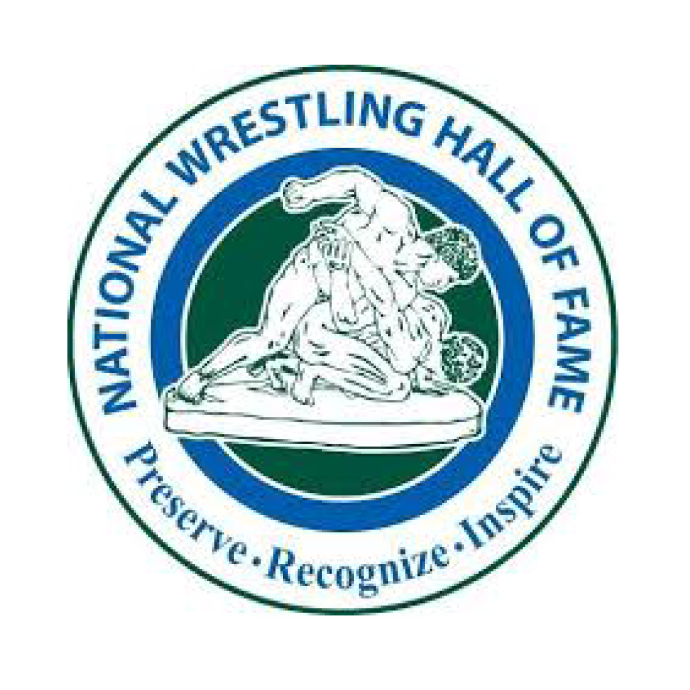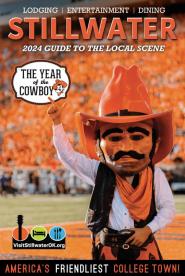Visitors to the National Wrestling Hall of Fame and Museum are seeing things in a whole new light, thanks to a collaboration between Leslie Currell, Instructor of Professional Practice and Scene Lab Manager for the Oklahoma State University Department of Theatre, a group of OSU students and the Smithsonian Institution.
“The difference in the lighting at our museum is amazing and is going to make our visitors’ experience even better,” said Lee Roy Smith, Executive Director, National Wrestling Hall of Fame. “We appreciate the time and effort of Leslie and her students and the involvement and assistance of the Smithsonian Institution.”
The theatre students are Leah Anderson of College Station, Texas; Carly Gotcher of Frisco, Texas; Stephen Higginbotham of Euless, Texas; and Chapman Shields of Bristow, Oklahoma.
Working under the guidance of Currell, the students created a comprehensive plan to creatively redesign the lighting in the museum, utilizing the lighting fixtures already owned and installed in the museum. Before beginning their project, the students had to replace approximately 100 of the existing lights because of a manufacturer defect.
"When I was first approached with the prospect to work with both the National Wrestling Hall of Fame and Museum and Jeremy Carton, Lighting Project Manager for the Smithsonian Institution, my immediate response was, ‘absolutely. What a fantastic opportunity and how many students can I include on the project?’,” said Currell. “I knew that our students would benefit greatly from experiencing this type of project, emphasizing that the skills and processes they have learned for their theatre degree are applicable for other industries as well.
“The students were offered insights from Jeremy and Scott Rosenfeld, Lighting Designer at the Smithsonian, about the obligations when working with lighting in a museum setting such as the patron experience, visibility of the artifacts, and how light degrades artifacts, that really opened the eyes of the students to how significant the project really was for both the enjoyment of the patrons and the preservation of the history."
The students worked throughout the Spring 2021 semester to create and implement an initial plan to reposition, focus, beam-shape and soften the existing lighting fixtures to better suit the current exhibits. Utilizing their new design, they rehung and refocused the lighting system while also utilizing custom-cut screens on each of the 150 lights to further enhance the lighting.
The adjustments and enhancements have not only made the exhibits easier on the eyes, but are also helping provide protection for the memorabilia.
The idea to upgrade and enhance the museum’s lighting began in 2019 when Carton toured the museum while visiting his fiancé, a veterinary medicine student at OSU.
Carton offered to assist the museum in making its lighting better. When Carton was unable to travel because of the COVID-19 pandemic, he offered to reach out to the OSU Department of Theatre, where his inquiry was answered by Currell.
The students had a virtual meeting with Carton and Rosenfeld who showed them a variety of exhibits at the Smithsonian and how the lighting was created for each. The students then toured the museum and were provided schematic drawings to assist in their redesign.
The students also created plans for future expansion of the lighting system to accommodate a more versatile layout of the memorabilia throughout the museum.
They also offered suggestions to aid in the preservation of the artifacts, including prints on the museum windows to help minimize ultraviolet light and motion-sensor light switches.
“Working on the Hall of Fame’s lighting was a wonderful experience. In theatre, we shape lights to best fit the needs of a production,” said Anderson. “For this project, we were able to shape light to best showcase artifacts, trophies, and memorabilia. This experience was educational and an exciting project to be a part of!”
The changes have created an enhanced museum experience for visitors, showcasing the exhibits in a new and more visually pleasing manner while also helping to preserve the historical memorabilia.
“It was a pleasure to see the power of collaboration at work,” said Carton “This project was educational and beneficial for everyone involved and I am grateful to have been a part of it.”





